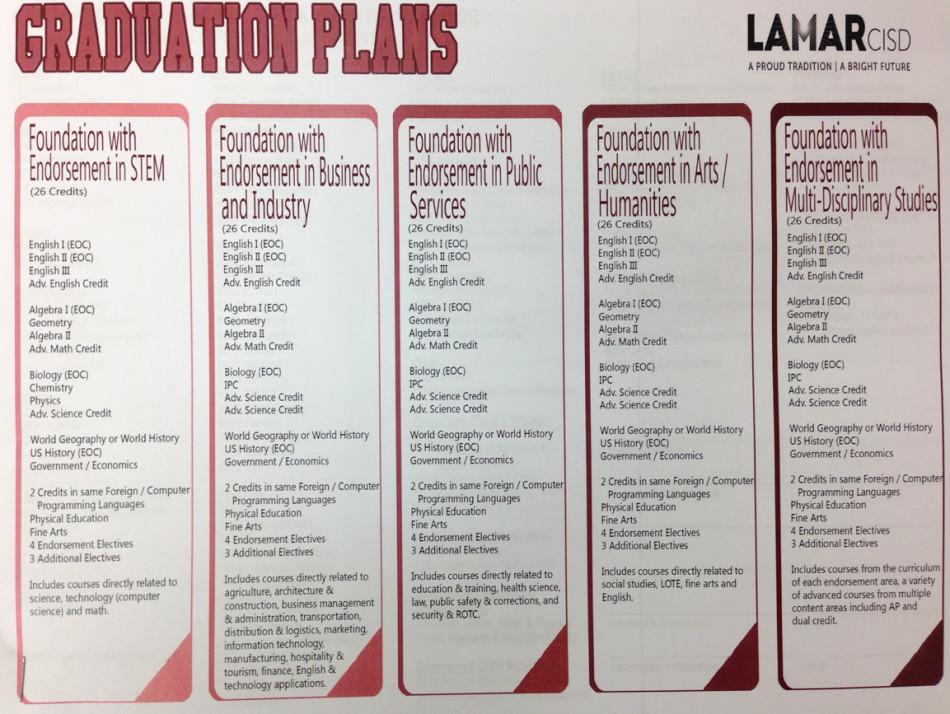House Bill 5 Transforms Texas High School Education
March 24, 2014
On March 17, parents will gather in Reading Junior High School to be briefed on the new graduation plan for the incoming freshman for the 2014-2015 school year. House Bill 5, as the proposition is known, is going to revolutionize Texas high school education.
“It’s changing the graduation plans for students to make their schedules more flexible,” Christy Tucker, high school counselor, said. “So they have more choice in what they’re taking and [their schedule] is based more on their interests.”
The new graduation plan will be put into effect beginning the fall of 2014. What has quickly become House Bill 5’s signature marker is its new “endorsement” program, a way for students to select a track that will carry them from their freshman year until they graduate. There are five different endorsements to choose from: STEM (Science, Technology, Engineering, Math), Business and Industry, Public Services, Arts and Humanities, and Multidisciplinary.
“It’s kind of like choosing a major,” said Tucker. “I keep equating this to college.”
The endorsement program definitely evokes the feeling of choosing a major for college. As incoming freshman, the class of 2018 will have to choose an endorsement to follow for the next four years. Some are concerned as to whether 14-year-olds are capable of choosing an area of study so early in their high school careers. However, House Bill 5 already has a provision set in place for exactly this.
“They have total flexibility,” said Tucker. “They can change [their endorsement] after their sophomore (…) year.”
In addition to the endorsement program, a few new big changes will be taking place through House Bill 5. In the spirit of allowing students to pursue their interests, health and speech credits will no longer be required to graduate. The recent EOC tests will also be discarded (for the most part). The Algebra, Biology, English I, English II, and US History EOC will still be required, and students must meet passing standards in order to graduate.
While the new endorsement program is much-anticipated, the major changes it will be bringing probably won’t be apparent until the class of 2018 enters their junior and senior years in high school.
“Now will there be brand new courses next year?,” Tucker said. “Probably a couple but not a lot, because when they’re coming in as freshman they’re still typically taking their basics; it’s kind of like college where you have to have certain things you’ve got to get out of the way before you can jump into the fun stuff that you’re actually interested in.”
Though the “fun stuff” may not be available until the future, the promise of fun is certainly a new concept for many Texas high schools as far as academics are concerned. If House Bill 5 delivers on all of its promises, high school education may never be the same.




